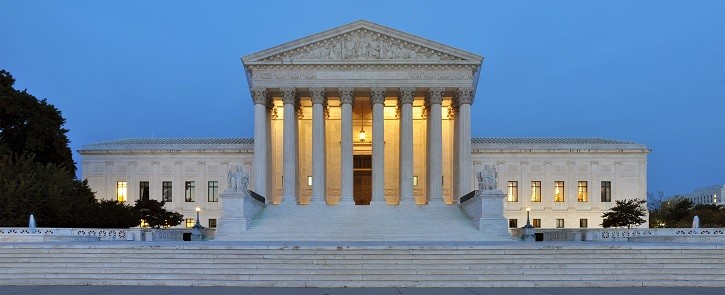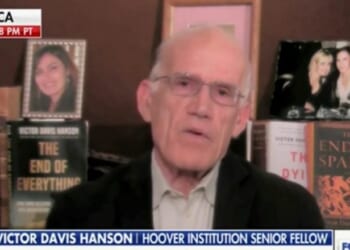Press Releases
|
November 10, 2025

(Washington, DC) – Judicial Watch President Tom Fitton announced today that the Supreme Court of the United States has granted review in a landmark election integrity case brought on behalf of the Libertarian Party of Mississippi. The case seeks to uphold a ruling by the U.S. Court of Appeals for the Fifth Circuit, which struck down a Mississippi law unconstitutionally allowing election officials to count mail-in ballots received up to five days after Election Day. Fitton stated:
The Supreme Court now has an opportunity to reaffirm that “Election Day” means what it says under federal law. Counting ballots received after Election Day not only violates federal law but encourages voter fraud and undermines voter confidence. The Supreme Court should uphold the historic decision by the Fifth Circuit that sensibly concluded that counting ballots received after Election Day is unlawful.”
In October 2024, Fifth Circuit appellate opinion found:
Congress statutorily designated a singular “day for the election” of members of Congress and the appointment of presidential electors. Text, precedent, and historical practice confirm this “day for the election” is the day by which ballots must be both cast by voters and received by state officials. Because Mississippi’s statute allows ballot receipt up to five days after the federal election day, it is preempted by federal law. We reverse the district court’s contrary judgment and remand for further proceedings.
In August, Judicial Watch had filed a brief to the Supreme Court, opposing Mississippi’s attempt to overturn the Fifth Circuit’s October 2024 decision (Michael Watson, Mississippi Secretary of State v. Republican National Committee, et al.,(No. 24-1260)).
Judicial Watch’s brief recounts:
In reversing the district court on the merits, the [Fifth Circuit] panel faithfully followed this Court’s precedent … [T]his Court found that the Election Day statutes preempted a Louisiana law that allowed congressional candidates to be elected in October…. In interpreting the meaning of “day of the election” within the Election Day statutes, this Court found that “[w]hen the federal statutes speak of ‘the election’ of a Senator or Representative, they plainly refer to the combined actions of voters and officials meant to make a final selection of an officeholder.” … Accordingly, the “day of the election” “may not be consummated prior to federal election day.”
Judicial Watch initially filed the civil rights lawsuit in February 2024 on behalf of the Libertarian Party of Mississippi, challenging the election law. The suit was consolidated with one filed by the Republican National Committee, the Mississippi Republican Party, and other complainants.
Judicial Watch is a national leader in voting integrity and voting rights. As part of its work, Judicial Watch assembled a team of highly experienced voting rights attorneys who stopped discriminatory elections in Hawaii, and cleaned up voter rolls in California, Ohio, Indiana, and Kentucky, among other achievements.
Judicial Watch recently filed an amici curiae (friends of the court) brief along with the Allied Educational Foundation (AEF) to the Supreme Court of the United States, asking the court to reverse the Third Circuit’s decision denying the Public Interest Legal Foundation (PILF) standing to sue for voter information guaranteed under the National Voter Registration Act (NVRA).
In October 2025, the Supreme Court heard oral arguments in the historic case Judicial Watch filed on behalf of Congressman Mike Bost and two presidential electors, arguing to vindicate their standing to challenge an Illinois law allowing the counting of ballots received up to 14 days after the Election Day beyond the date established by federal law (Rep. Michael J. Bost, Laura Pollastrini, and Susan Sweeney v. The Illinois State Board of Elections and Bernadette Matthews (No. 1:22-cv-02754, 23-2644, 24-568)).
Other examples of Judicial Watch’s election law work include:
Federal courts in Oregon, California and Illinois recently ruled that Judicial Watch’s lawsuits against those states may proceed forcing them to clean their voter rolls.
Judicial Watch announced in May that its work led to the removal of more than five million ineligible names from voter rolls nationwide.
###

![Scott Bessent Explains The Big Picture Everyone is Missing During the Shutdown [WATCH]](https://www.right2024.com/wp-content/uploads/2025/11/Scott-Bessent-Explains-The-Big-Picture-Everyone-is-Missing-During-350x250.jpg)













